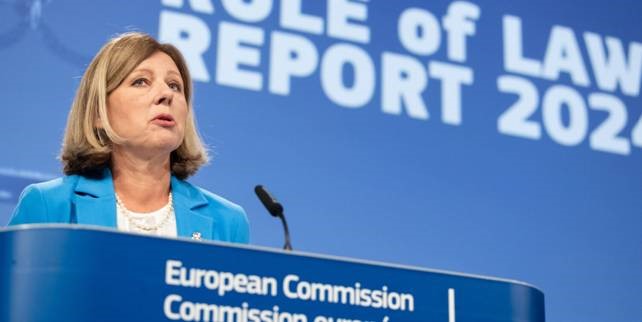The EU Commission has just published its 2024 Rule of Law Report, officially presented by the Vicepresident of EU Commission, Vera Jourova.
As far as judicial independence is concerned, the first parameter is that relating to the judiciary for which several member states “have initiated or carried out important reforms to strengthen its independence” among which European Commission Vice-President Vera Jourová wanted to mention “two successful examples” — Poland and Spain. In Warsaw, the parliament adopted a law to address concerns about the independence of the National Council of the Judiciary. In Madrid, following a structured dialogue brokered by the European Commission, the main political parties reached an agreement to renew the Council of the Judiciary and start a process to adapt the appointment of its judges, considering European standards.
Far from optimistic is the scenario drawn in Slovakia, where “no progress has been made to introduce guarantees for the removal of members of the Judicial Council”, and indeed, three appointments have been revoked before the end of the term. In Bratislava, as well as in Rome and Madrid, there is concern about “the risk that public statements by governments and politicians may affect public confidence in the independence of the judiciary.” Still, on the subject of justice, the Italian government is among those being watched for the new law repealing the crime of abuse of office and limiting the scope of the crime of influence peddling, which “could have implications for the detection and investigation of fraud and corruption.”
Moreover, proposed changes to the statute of limitations in Italy could reduce the time available to prosecute criminal offences, including corruption cases. The report notes that almost all member states currently have national anti-corruption strategies, “albeit with varying comprehensiveness.” While the Commission points out “some delays” in Malta, the black jersey is still for Slovakia, and the recent criminal law reform passed in Bratislava, which includes lowering penalties for corruption and related offences, shortening the statute of limitations for corruption offences, and abolishing the Special Prosecutor’s Office.
(Part concerning Justice systems is No. 3.1, pages 10 ff.)


